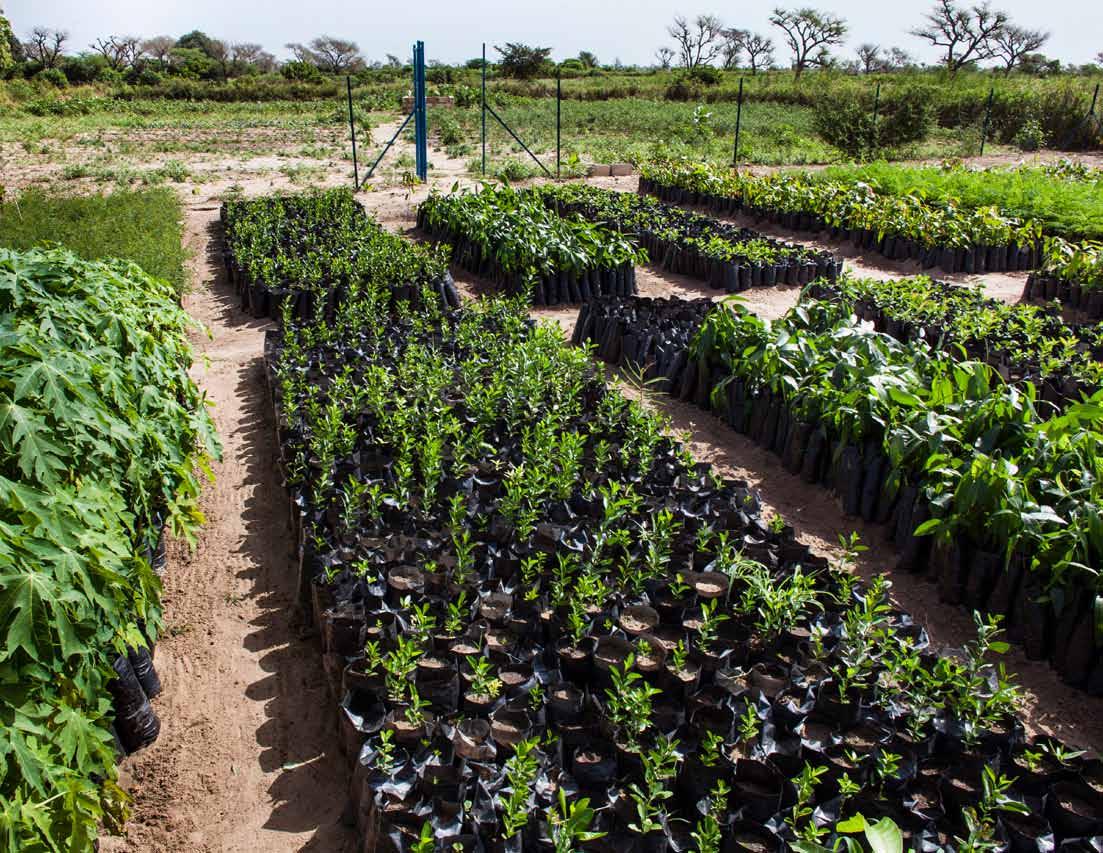
2 minute read
Children, Agents of Food Security in Uganda
from Land for Life
uganda
The reality of the primary school system in Uganda is often disheartening. Drop-out rates, especially in rural areas, are up to 75 percent, and the curriculum tends to focus on theory, not practice. Children who drop out of school early often depend on subsistence agriculture, but don’t understand the many negative environmental impacts that may result from their agricultural practices.
Advertisement
The Conservation Efforts for Community Development (CECOD) has a program that gets to the heart of these challenges. It takes children out of the classroom and into the real world, where they learn many different ways of managing land sustainably. CECOD has trained 7,500 teachers from 681 primary schools under Primary Teacher Colleges Catchment Area. The organization has 364 ongoing school-based microprojects that promote sustainable land management practices.
In St. Aloysius Primary School in Mbarara, for instance, 14-year-old Brendah Nyakato shows her school friends how to sort waste and produce organic manure for the school garden, where the children grow bananas. In another primary school in Mbarara, children are learning to build energy-saving stoves to avoid deforestation and protect soil from erosion. They are also encouraged to take practical action, like leading campaigns to stop littering and to improve the local environmental quality. The outcomes are impressive: the program has reached 103,600 primary school pupils, the ecoschool children have planted almost 52,000 trees in their communities, and the training has benefited about 18,750 households. The organization has launched over 250 ecostudent parliaments and ecoparent associations that spearhead pupils’ involvement in school planning and influence decision making in environment-related activities.
CECOD’s achievements made them one of the two runners-up for the 2012 Land for Life Award, and it received US$30,000 to support its activities. In granting this award, the panel concluded that this approach may have several other positive externalities in addition to promoting sustainable land management education like improved school attendance by children, if they perceive that there are tangible additional benefits of going to school because of sustainable land management learning.
With the cash award, CECOD immediately launched its own Green Flag Award. This is a competition that recognizes schools and communities that are leaders in collaborative, sustainable natural resource management. In 2013, the Green Flag Award was shared by 88 primary schools, and the scheme is targeting 200 schools in 2014. With appropriate support and guidance, children need not wait to be leaders of tomorrow. They can start investing in their future today.
Web site: http://cecodug.org










